The death of Philippe de France, Duc d’Orléans
On 8 June in 1701, the Château de Marly was the location of a dinner party. It was Louis XIV’s habit to leave Versailles at times and retreat to Marly-le-Roi, where he had built a, compared to Versailles, small château. To be of the ‘Marlys’, meaning to be one of few allowed to follow the King to his ‘summer house’ was a thing sought by many and only achieved by few. Those special few would witness a clash of brothers as Louis XIV invited to dinner this day.
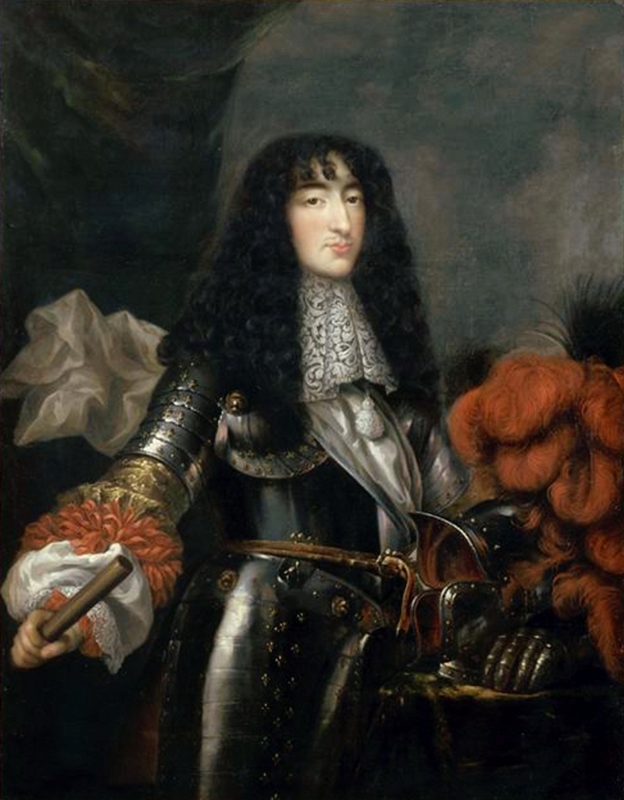
The King’s brother, Philippe de France, was invited to said dinner as well and the air between the brothers was somewhat cold. The reason for this was once more a disagreement. It all had started in April the same year and as so often before, the brothers enraged each other. This disagreement was special however, it was not just the last they would ever have, this time Philippe refused to yield to his brother and King. What was the fuss about? Philippe’s son, back then holding the title of Duc de Chartres, had married Françoise Marie de Bourbon, legitimised daughter of Louis XIV and Madame de Montespan. This marriage was a bit of a scandal itself and Chartres did not agree to it entirely happily. Most of the court was against the marriage, including his mum, which slapped him in front of half the court. It took nonetheless place in 1692 and by 1701, four children had been born to the mismatched couple, all daughters.
Chartres nicknamed his wife Madame Lucifer, both didn’t care much for each other and he kept on to have mistresses. One of them, and perhaps the only woman he ever truly loved, was Mademoiselle de Séry and here is where the fuss started. Mademoiselle de Séry gave birth to a son only a few days after Chartres’ third daughter by his wife was born. Louis XIV was rather displeased with the behaviour of his son-in-law, all his debaucheries, his idleness, mistresses, and his father, who seemed to allow all of it.
Philippe saw the matter differently. Promises were made by the King concerning Chartres that were not yet kept. His son still had no military position and even though son-in-law to the King, was not treated as such by Louis. Chartres’ brothers-in-law, the legitimised brothers of his wife, were showered in favours and he got nothing. Louis XIV made it clear that he did not intend to give Chartres a military position at all and stated his disappointment in his brother for allowing his son such bad lifestyle.
The King probably expected that this scolding would settle the matter, but it did not. Philippe fired back. What was his son supposed to do? He was son-in-law to the King, yet subordinate to the peers, him being a grandson of France. Others get what was promised to him, get what was promised to lure him into this marriage. He is condemned to walk the Hall of Mirrors, day by day, with no trust put into him, with nothing better to do than engage in games and gossip and that was Louis fault, not his son’s. If Louis had given him a command, he would be able to prove himself instead of being idle, he would bring glory to the King… idle minds are prone to debaucheries, Philippe was very aware of that himself. It is wrong, he argued, to blame Chartres for his misdeeds, when he is given no chance to prove himself. This first clash ended with an angry Philippe and a shocked Louis.

This argument followed the brothers in the next months and was revived that very day in Marly. Both brothers were not the youngest anymore and Philippe’s health not the best. He suffered of gout, frequent fevers, and each took longer to overcome. Philippe was aware that his days on earth came to an end. The King’s brother had reached an age of sixty and given up much of his former lifestyle. He still continued to collect precious artworks, all sort of gems and jewellery, and his chosen residence Saint Cloud as well as the Palais-Royal in Paris were still enlarged and beautified. He still hosted lavish parties at both locations, yet was more moderate in his personal lifestyle compared to the debaucheries of his youth. In March, Philippe had suffered of a bad fever and his recovery was slow, leaving him somewhat melancholic and filled with a strange sadness. Perhaps aware his end would come sooner that he would like, he lost his light air and merry mood, the thought of death always following.
As Philippe entered the royal apartment at Marly on the afternoon of 8 June, he was greeted by Louis XIV with a new scolding. The King complained once more of Chartres behaviour and the humiliation it causes, especially to his daughter. Philippe’s blood began to boil at once again. “Fathers, who have led certain lives are in no position morally or otherwise to reproach their sons.”, he returned… and that was only the start….
Louis rose from his chair and continued his scolding with great fury, stressing the patience of his daughter, Chartres infidelities, how she is forced to witness it all, see it all. Philippe’s anger exploded. How could Louis dare to scold Chartres for something he celebrated in his youth himself? Had he forgotten how his own wife suffered, while Louis flaunted his mistresses? How she had to watch it all in silence? How he made his wife share a carriage with not only one of his mistresses, but two. How people talked of the three Queens of France.

The doors of the royal apartment were wide open as the brothers continued to shout at each other and all of the Marlys witnessed the fierce argument, prompting a servant to enter in order to remind the royal brothers they could be heard in the adjoining salons.
Philippe was beside himself with rage and reminded Louis once more of all the things that were promised to his son and that not one of those promises was kept. That he would not reprimand his son and how he now could see what everyone had warned him about, that only shame and dishonour would come from this marriage.
Louis returned to an old trick then, saying he would be forced to cut Philippe’s pension, if he continued to be so resistant. Money, Louis knew that well, was one thing which would make his brother more agreeable if promised or threatened to by reduced. It did not work this time. Philippe was far too angry, far too upset. The way Louis treated his son was so very similar to how Louis had treated him all his life. Chartres was belittled by the King, just as Philippe was, Chartres was not allowed to prove himself, was expected to obey blindly, just as Philippe was. Promises were made and never kept. Money offered to make peace.
The argument was halted as the bell rung to announce dinner time and the brothers, still furious, made their way to table. Philippe sat down, red-faced and with anger in his eyes, and perhaps in spite ate everything put in front of him, ignoring concerned voices suggesting he should retire to rest. He still ignored them as his nose began to bleed….
Later that day, he returned to Saint Cloud, still filled with anger. Finding his wife ill in bed and unable to join him for supper, he announced somewhat gaily “I’m off to supper, because, unlike you, I am hungry.” and thus went to sup with his son and his usual company. Philippe ate hearty again, as it was his habit. At dessert time, while pouring a glass of liquor, Philippe suddenly started to stammer and paint a figure in the air with a shaking hand, then collapsed in the arms of his son.
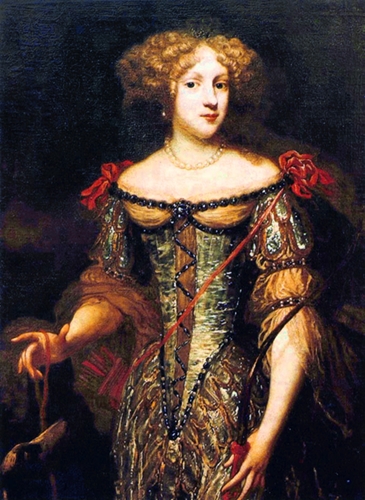
Philippe was pulled up and walked through the room, back and forth, he was shook to bring him back to his senses, then brought to his apartment. Physicians were called and bled him, a strong emetic was given to him along with a clyster. He was made to swallow two bottles of ‘English drops’ and some ‘Schaffhausener water’, thought to help with strokes.
Madame, hearing sudden unrest in the chateau, rushed to his rooms after being informed of her husband’s condition and found him on a small bed, set up in his cabinet in a hurry, and close to unconsciousness. She must have been shocked by what she saw. Philippe’s lower lip had swollen dramatically and was hanging.
“How are you feeling?” she asked. “A little better.” he replied, adding his concern for her health. “It is not important now. Do not think of me, think of yourself.”, she returned. Philippe, having difficulties to speak, insisted his wife should return to her rooms, she was suffering of a light fever as he left for supper after all, but Madame refused.
Madame and Monsieur had grown closer to each other in the last few years of their marriage. Philippe was content with her and she gained his trust, his mignons were not longer allowed to made fun of his wife and whenever she was in disagreement with anyone, he took her side. Philippe continued to urge his wife to leave the room and she continued to ignore his wish, taking care of him instead. As he refused to swallow a bitter medicine, his doctors told him it is Madame’s wish and he obeyed without further complains.
Everyone present was touched by what they saw, Philippe’s concern for his wife and Madame’s nursing. The past was of no importance anymore. All the years in which Madame suffered and her husband did nothing were forgotten.
The King arrived at ten in the evening and Madame was close to faint as the condition of her husband continued to grow worse and worse. She was ordered to retreat to her rooms by the King, yet found no sleep, and returned to her husband’s side.
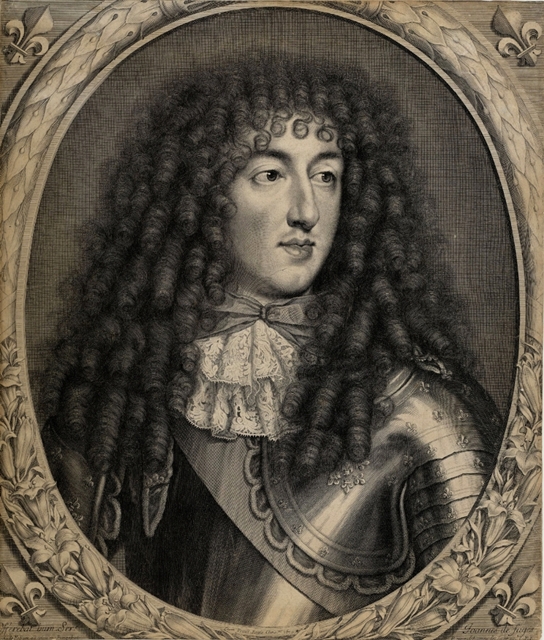
Philippe’s time had come. Nothing could be done. He fought nonetheless.
As witnesses state, they were baffled his heart did not cease to beat for a long time after he lost consciousness at five o’clock in the morning. Louis remained by his side for a long time, tears rolling over his cheek, saying “I can not believe I shall never speak to my brother again.“. The last conversation they ever had, was an argument over their children, an argument that let both part angry with each other.
Philippe took his last breath around noon the following day.
The funeral service held at Saint-Denis was according to the wishes of Philippe’s testament, elaborate and magnificent. Philippe’s heart was brought to Val-de-Grace on June 14 and a week later, his body was laid to rest in the Bourbon crypt of Saint-Denis.
The Mercure Gallant published a poem in honour of Monsieur, a man that always stood in the shadow of his brother, a man who never gained the trust of his brother, a man who was constantly doubted, belittled, from whom was taken what he loved by his brother. A man of pleasure, a warrior, a brother, a father, a lover. Someone who was generally underestimated during his time and still is today. Someone who loved and was judged for it, because he happened to love a man. Someone who was called weak, a pervert, yet showed great braveness in battle. Someone who stole the glory of the King once and was punished for it forever.
The Moon to the Sun that was Louis XIV.
“To Monsieur, Duc d’Orléans,
Cassel brought him glory in great battle,
fame raised him up,
fate brought him down.”

Philippe’s remains were tossed into a mass grave during the plundering of the graves of Saint-Denis in 1793, after being stripped of all jewelries and items of value. His long-time boyfriend, the Chevalier de Lorraine, died little over a year later, on December 8, 1702. Just like Philippe, he suffered of a stroke and painted a figure in the air, to die shortly after.
For a more detailed article on the life of Philippe de France, please click here.
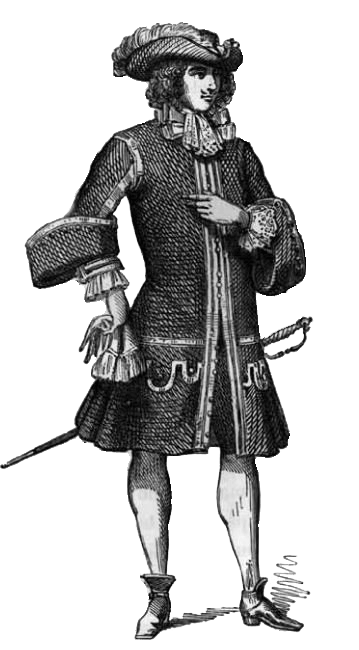
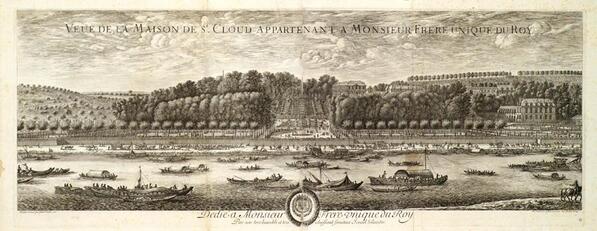
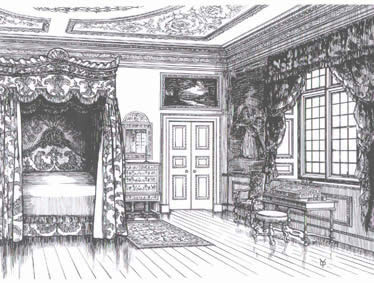
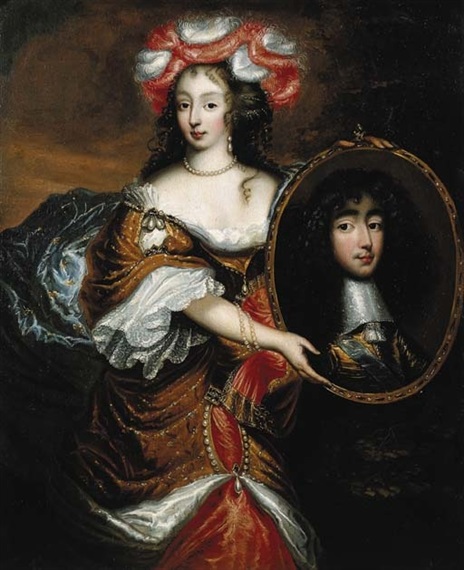
12 Comments
Blanche Wedderburn
I actually felt compassion for Phillipe on reading this piece.
Tammy
me too
Sandra Butler
welling up reading this, so sad, beautifully written x
paris
beautiful….merci
Bernadette Gault
Philippe was truly loved by the people chevalier and Louis
Riffut Aziz
He would have been a great statesman , if allowed. Unfortunately , he was bullied by his older brother. From childhood , he was made aware by his mother , in particular , that he would always be insubordinate to his magnificent, older brother , Louis 14th . Poor Philippe . He was bored . Lonely and never allowed to achieve his potential. When he did on the battlefield, he was punished severely.
Kenton
Very impressed with his wife Madame (Duchesse d’Orléans) who was a good person and found the court at Versailles Ridiculous and said in one of her letters to her family people in the future won’t believe what history will say of this place but she said it’s all true and much worse.
Maggie
Thank you very much for this account of Philippe’s passing. You write that he became closer to his wife in his latter years. And took her part against all others.
Even against the Chevalier de Lorraine?
Did he remain emotionally closer to the Chevalier de Lorraine, than all others, in his last years? (Even if they were no longer sexual partners.) Did Lorraine still have his own apartments at all of Philippe’s residences?
Thank you for any reply you feel like giving.
Aurora von Goeth
Hiya 🙂 He was still quite close with the Chevalier, but Philippe put an end to people intriguing against her. The Chevalier made peace with Liselotte towards the end of his life. He had apartments in Monsieur’s residences, for sure at the Palais-Royal and Saint-Cloud, and at least in case of the one in the Palais-Royal, he was offered to keep it after Monsieur died. The Chevalier also had a apartment at Versailles, a own chateau and owned several properties.
Preston S
Thank you for posting this, and for recognizing that beyond being in love with another man, he was still just the same as anyone, though treated different. Thank you.
Lisa
What a beautiful and tragic soul, he remains in the shadows for so long. He fought for a little peace and happiness and for most of his life he had none. Then after his death could not rest in peace.
Nathalie
At that time, the reliquaries that held the hearts at St-Denis were made in silver coloured enclosures. In true Monsieur form, his was tinted vermillion!
I would go as far as to say that Philippe was far more intelligent than Louis and that is the irony of the next in line not necessarily the best choice to rule.
What a tragedy.